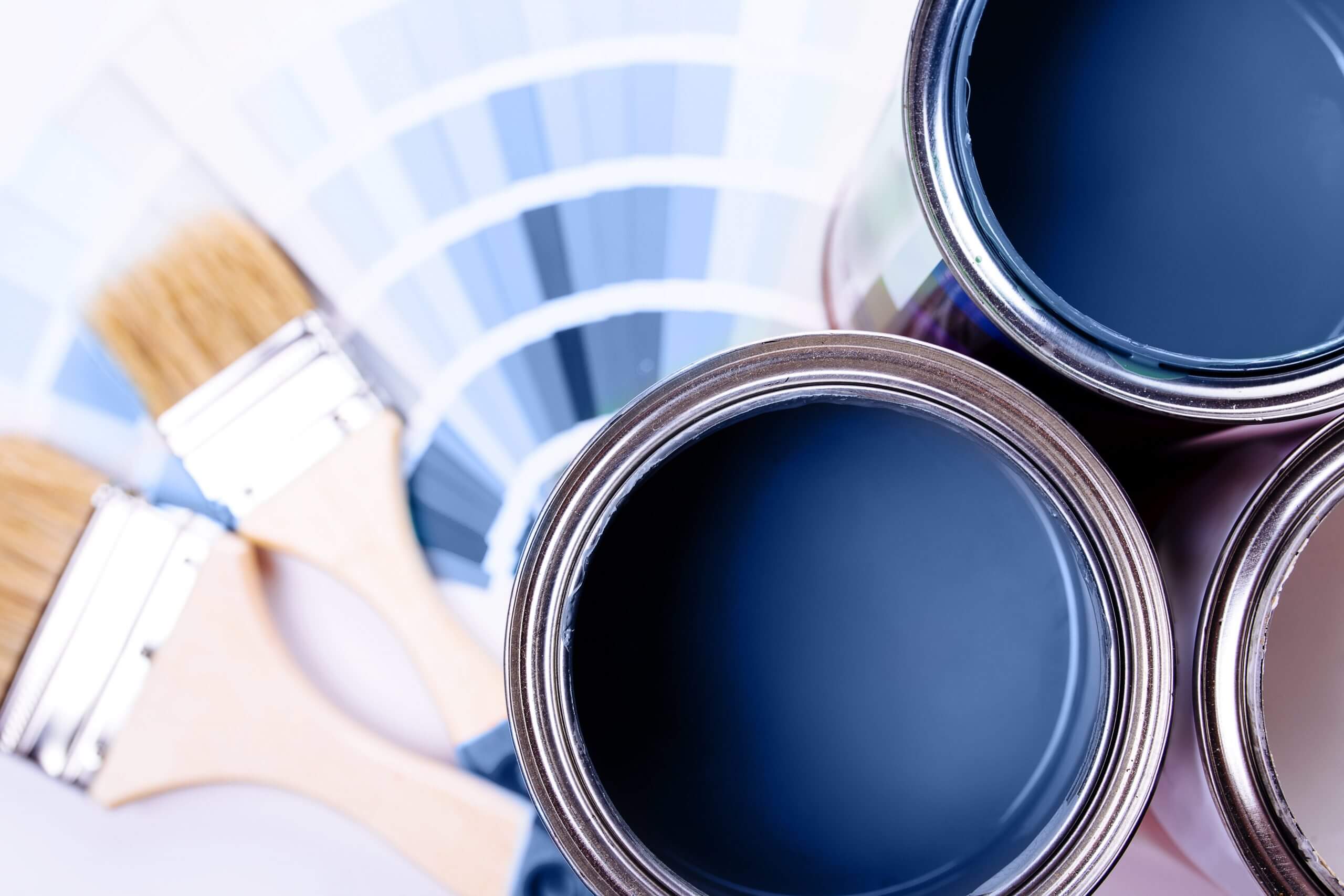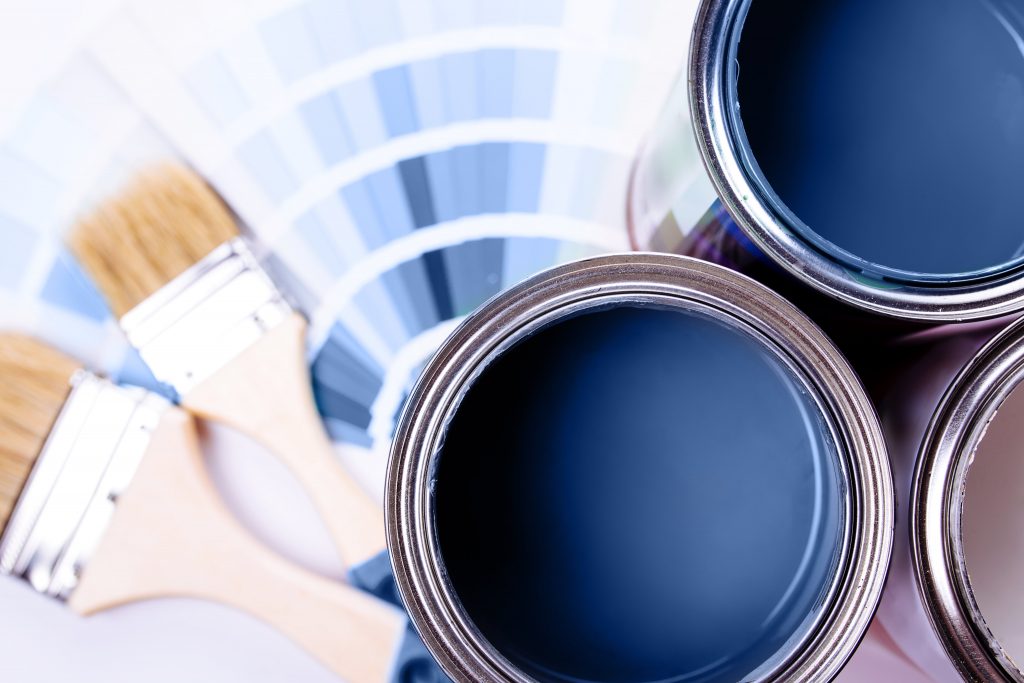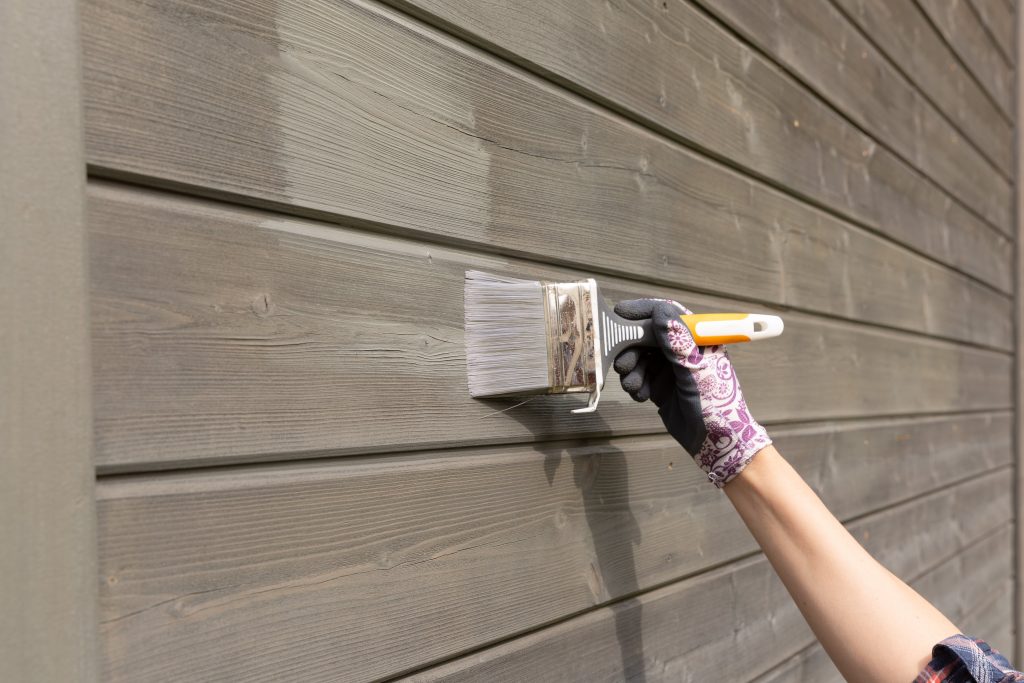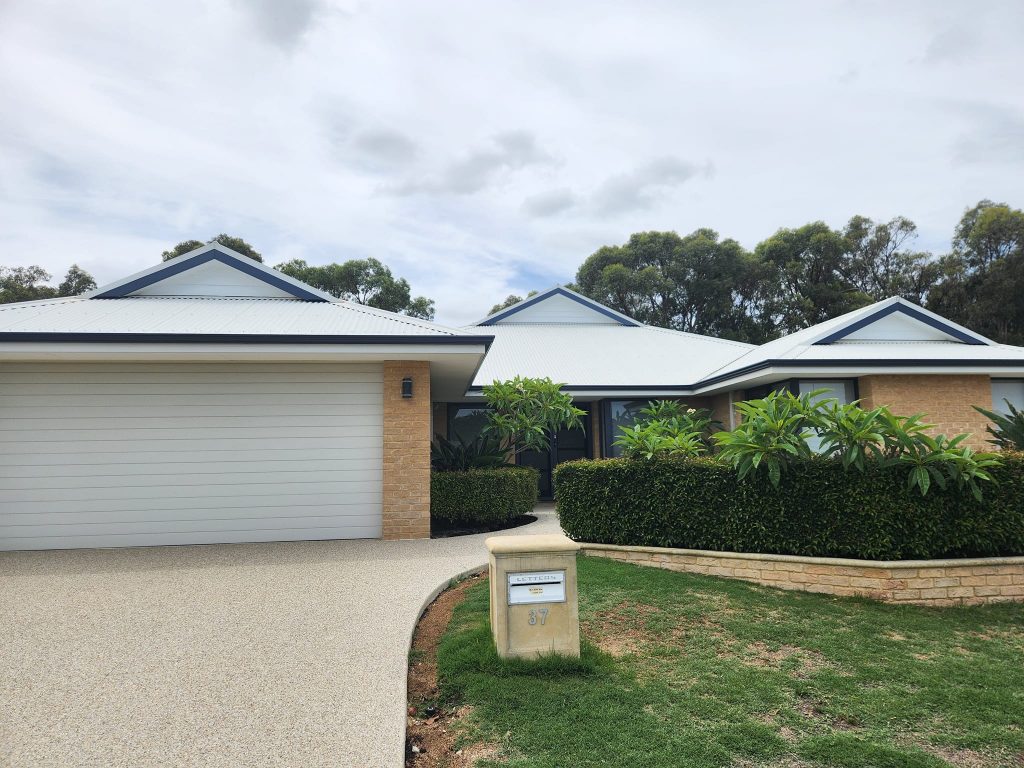
Embarking on an exterior painting project prompts a lot of people to ask the question: Can I use interior paint outside if I seal it? While the answer is yes, there are crucial nuances to consider, mainly surrounding the external environment.
This blog seeks to unravel the complexities surrounding the use of interior paint in external settings, emphasising the pivotal role of proper sealing techniques. Drawing insights from the expertise of Dulux-accredited professionals, we aim to guide homeowners, property managers, and DIY enthusiasts through the decision-making process, balancing cost-effectiveness with the long-term resilience of outdoor paint projects.

Factors That Affect Interior Paint When Used Outdoors
Choosing interior paints to use outside can be tempting, especially if you have leftover interior paint that you don’t want to waste. However, it is essential to understand that interior paints are not designed to withstand the harsh outdoor elements. Here are some factors that can affect interior paint when used outdoors:
Temperature
Extreme temperatures can cause interior paint to crack, peel, or fade. When exposed to high temperatures, the paint can expand and contract, leading to cracks and peeling. On the other hand, low temperatures can cause the paint to become brittle and crumble.
Humidity
High humidity levels can lead to unsightly blisters and peeling on the painted surface, while low humidity levels can result in the paint becoming brittle and prone to cracking. By being mindful of the prevailing humidity levels, you can help ensure that your outdoor paint job remains durable and visually appealing over time.
UV Exposure
Exterior paints are specifically created to withstand the element, especially against UV exposure which can be extremely harsh in areas of Australia. Using leftover interior paints outside can cause the pigments to fade and lose their colour. Over time, the paint can become chalky and brittle, leading to cracking and peeling.
Potential Risks of Using Interior Paint Outdoors
Just like with using exterior paint inside, using indoor paint outdoors can pose several risks, both to your health and the environment.
Health Risks
Indoor paints contain chemicals that can be harmful when inhaled or come into contact with the skin. When used outdoors, the paint can release toxic fumes that can cause respiratory problems, headaches, and dizziness. Additionally, some interior paints contain hazardous materials such as lead, which can be harmful if ingested.
Environmental Risks
The use of interior paint outdoors poses significant environmental risks as its components may infiltrate the soil and water, introducing harmful chemicals. This contamination has direct consequences on local flora and fauna, disrupting plant growth patterns and impacting wildlife through the food chain.

How to Properly Seal Interior Paints for Outdoor Use
If you need to use leftover interior paint outdoors, it is essential to properly seal it to protect it from the elements and reduce the risks associated with its use. Here are some tips on how to seal interior paint for outdoor use:
Choosing the Right Sealant
When choosing a sealant, select one that is designed for exterior use. Look for water-resistant sealants, UV-resistant, and can withstand extreme temperatures.
Preparing the Surface
Before applying the sealant, prepare your exterior surfaces properly. Clean the surface thoroughly and remove any loose or flaking paint. Sand the surface to create a smooth, even surface for the sealant to adhere to.
Applying the Sealant
Apply the sealant according to the manufacturer’s instructions. Use a brush or roller to apply the sealant evenly, making sure to cover the entire exterior surface. Allow the sealant to dry completely before applying a second coat.
Maintenance Tips
To ensure the longevity of the sealed interior paint, make sure to maintain it properly. Regularly clean the surface with a mild detergent and water to remove dirt and debris. Avoid using abrasive cleaners or tools that can scratch or damage the surface.

Paint Outside Properly With Elite Painting
While it may be tempting to use interior paint outdoors if you seal it properly, it is essential to understand the risks involved and take the necessary precautions to protect your health and the environment. At Elite Painting, we offer professional painting services that can help you achieve the look you want while ensuring the safety of your home and the environment. Our Dulux-accredited painters use high-quality exterior paints that are designed to withstand the harsh outdoor elements without compromising your vision. Contact us today to learn more about our services and how we can help you paint outside properly.
